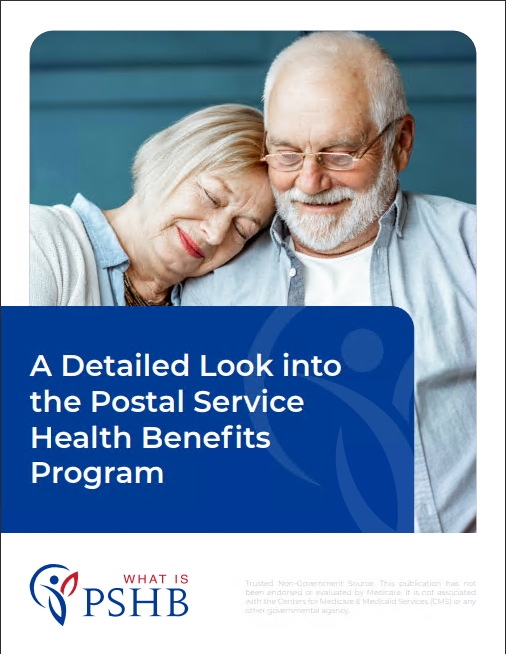Key Takeaways
-
Medicare Advantage plans might seem appealing, but they come with provider restrictions, prior authorization hurdles, and network limitations that can interfere with your access to timely and preferred care.
-
The Postal Service Health Benefits (PSHB) program offers a more flexible and reliable option, especially when paired with Medicare Parts A and B. This combination can provide broader access and fewer roadblocks to care.
What You Might Not Realize About Medicare Advantage Plans
Medicare Advantage (MA) plans are often marketed as an all-in-one solution for your healthcare needs. They combine hospital, doctor, and sometimes drug coverage into a single plan. At first glance, the simplicity seems appealing—but beneath that surface lies a structure that could compromise your access to care, particularly when you need it most.
In 2025, more than half of Medicare beneficiaries are enrolled in MA plans. However, if you’re eligible for the PSHB program and also Medicare, it’s important to understand why choosing a Medicare Advantage plan could place limitations on your future healthcare decisions.
Limited Provider Networks
Unlike Original Medicare, which allows you to see nearly any provider nationwide who accepts Medicare, most Medicare Advantage plans rely on restricted networks. These networks may limit your choices to specific doctors, specialists, or hospitals within a defined geographic area.
-
You may be required to select a primary care physician (PCP).
-
Referrals are often needed to see specialists.
-
Out-of-network care is usually not covered or only covered at higher costs.
These constraints can be frustrating—especially if you move, travel frequently, or want to keep seeing a specialist who is not in your plan’s network.
Prior Authorization Requirements Delay Care
Medicare Advantage plans commonly require prior authorizations for a broad range of services. This means you must get approval from the plan before certain procedures, tests, or medications are covered.
In 2025, prior authorization is one of the most-cited barriers to care reported by enrollees. It can cause:
-
Delays in treatment while waiting for approvals.
-
Denials that must be appealed, sometimes multiple times.
-
Administrative burdens on your providers.
For PSHB members with Medicare, these steps are usually unnecessary when using Original Medicare along with your PSHB plan—allowing you faster access to the care you need.
Emergency and Urgent Care Aren’t Always Seamless
While Medicare Advantage plans must cover emergency care anywhere in the U.S., real-world access isn’t always simple. Some enrollees report confusion about what qualifies as an emergency or face high costs when care was later classified as non-emergent by their plan.
Urgent care facilities can also be tricky. If you’re outside your home network or traveling, your MA plan may not cover visits to the nearest urgent care center, unless it’s in-network.
With PSHB and Medicare, you typically have broader access and fewer hoops to jump through for emergency and urgent care, no matter where you are in the country.
Benefits Sound Broad—But Are Often Narrow
Medicare Advantage plans often advertise a wide variety of extra benefits, such as dental, vision, hearing, fitness programs, and over-the-counter allowances. But in 2025, these benefits vary greatly by plan, location, and even ZIP code.
Here’s what many enrollees find:
-
Supplemental benefits are limited in scope or value.
-
Some benefits are difficult to use due to narrow provider lists.
-
Enrollees often don’t realize until midyear that they haven’t used most of the extras.
With PSHB, many enrollees already receive comprehensive coverage that includes prescription drugs, wellness services, and the option to add dental or vision coverage through separate federal programs like FEDVIP. These are standardized and don’t depend on where you live.
Out-of-Pocket Costs Are Harder to Predict
Although Medicare Advantage plans have a required annual out-of-pocket maximum, this doesn’t always mean lower costs.
In 2025:
-
The maximum in-network limit is $9,350, and combined in/out-of-network limit is $14,000.
-
Some services may cost more under MA than Original Medicare (e.g., skilled nursing, durable medical equipment).
-
Tiered copayments, coinsurance, and coverage gaps can surprise enrollees.
By contrast, Original Medicare combined with your PSHB plan gives you predictable cost-sharing, clearer benefit structures, and access to catastrophic coverage safeguards. Your PSHB plan coordinates directly with Medicare to reduce or even eliminate many of your out-of-pocket expenses.
Part D Prescription Drug Coverage Differs
Most Medicare Advantage plans include built-in Part D drug coverage. But this too has limits:
-
Formularies (drug lists) vary widely and can change yearly.
-
You may face step therapy or prior authorization for higher-cost medications.
-
Coverage may be regionally restricted, complicating pharmacy access when you travel.
If you remain in PSHB with Medicare, you receive your drug coverage through a Medicare Part D Employer Group Waiver Plan (EGWP), which typically provides:
-
A national network of pharmacies.
-
No coverage gap (donut hole).
-
A $2,000 out-of-pocket cap in 2025.
This structure is often more generous and stable than many retail Medicare Advantage drug benefits.
Travel and Relocation Complications
If you relocate seasonally or travel often—common among retirees—you may discover that a Medicare Advantage plan doesn’t travel well. Most are built for local service areas, and care outside of that area can be limited or denied.
You may need to:
-
Switch plans when you move.
-
Lose access to your regular doctors.
-
Re-navigate prior authorization and referrals in your new location.
PSHB combined with Original Medicare allows you to keep seeing Medicare-participating providers wherever you go—no regional constraints, no forced plan changes.
What Happens If Your Health Needs Suddenly Change
One of the biggest drawbacks of Medicare Advantage is how it may handle complex or rapidly escalating medical needs. MA plans often create roadblocks through narrow networks, coverage reviews, and benefit limitations. If you develop a serious condition requiring specialty care or ongoing treatment, you might find the plan no longer works in your favor.
And switching back to Original Medicare with supplemental coverage isn’t always guaranteed:
-
You can only change coverage during specific enrollment periods.
-
You may not qualify for certain supplemental coverage (like Medigap) without medical underwriting.
-
You could face gaps in coverage or unexpected expenses while you wait.
With PSHB and Original Medicare, you avoid these potential access issues and retain the flexibility to get the care you need, when and where you need it.
Why PSHB with Medicare Parts A & B Remains a Stronger Option
The Postal Service Health Benefits program, integrated with Medicare Parts A and B, is designed to give you seamless protection across care settings, timelines, and locations.
-
No need to switch doctors based on network contracts.
-
No referrals or gatekeeping for specialists.
-
Lower out-of-pocket costs due to cost-sharing coordination.
-
EGWP drug coverage tailored to your retiree status.
-
National portability with consistent access to care.
In 2025, the PSHB program offers a level of flexibility and reliability that Medicare Advantage plans often cannot match—especially when your healthcare needs are more than routine.
Know the Trade-Offs Before You Choose
Medicare Advantage plans are popular for a reason: they package a lot under one roof. But the convenience comes with costs—some visible, some hidden. Before choosing a plan that could limit your provider access, delay your care, or increase your long-term expenses, consider what really matters most to you.
If you’re a Postal Service annuitant or eligible family member, your PSHB plan gives you the foundation of dependable federal health coverage. Adding Medicare Parts A and B builds on that foundation without restricting your access to care.
Make sure your healthcare choices align with your lifestyle, medical needs, and expectations.
If you’re unsure how PSHB coordinates with Medicare or need help evaluating your options, speak with a licensed agent listed on this website for professional advice.









